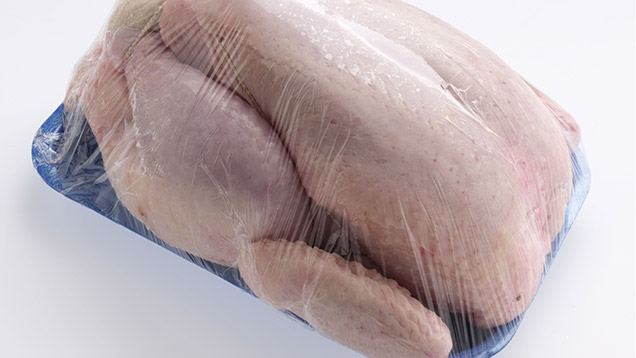Marks and Spencer ends thinning for poultry suppliers
 (c) Rex
(c) Rex Two retailers have announced measures to reduce the risk of campylobacter poisoning caused by poultry ahead of an expected announcement next week that will name and shame supermarkets’ contamination levels.
Marks and Spencer said it was now implementing a five-point plan that will end thinning on farms in its supply chain.
It will offer bonuses to farmers that supply campylobacter-free chicken and increase the double bagging of whole birds, which allows consumers to cook poultry without handling it. A spokesman told Poultry World it would bear the extra cost, and not pass a price rise on to consumers.
The Co-operative supermarket announced it would sell every whole bird as “roast in the bag”.
See also: Ways the poultry industry is working to reduce campylobacter
Marks and Spencer said it had worked with its main supplier of whole birds, 2 Sisters Food Group, and poultry supplied to it would be chilled during processing. In the coming months the new measures will be rolled out to every supplier of whole birds to the supermarket, it added.
The Food Standards Agency (FSA) is expected to make public the results of its second-quarter of campylobacter testing, and will rank supermarkets by contamination levels.
Steve Wearne, director of food policy at the FSA, said the interventions undertaken by the retailers was welcome, and that he looked forward to examining the effect on the agency’s ongoing testing.
Media attention
This week has seen renewed interest in the bug, with coverage in a number of national newspapers. The Times, on 19 November, accused industry of withholding results and allowing the continued sale of contaminated poultry.
It referred to a small sample of testing undertaken by the joint working group.
Consumer rights outfit Which? also stepped into the argument, launching a campaign entitled “Make Chicken Safe”. It said in a statement: “Consumers are being sold chicken with potentially lethal levels of bacteria, but action is not happening quickly enough.”
The group called for publication of all campylobacter testing and for industry to “immediately set out the action they will take individually and collectively to bring campylobacter levels under control.”
